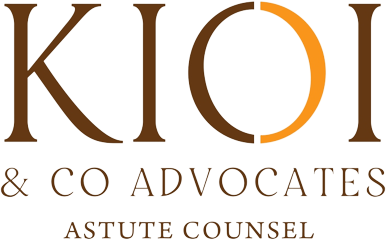Let’s talk about Consumer protection.
Article 46 (1) of the Constitution of Kenya provides the basis of consumer rights and these include;
- to have goods and services of reasonable quality
- to have information that is necessary for them to gain full benefit from goods and services.
- to have protection of their health, safety and economic interests.
- to be compensated for any loss injury arising from defects in goods and services.
With this in mind therefore, the big question is what is consumer protection? In layman’s language, Consumer protection may briefly be described as; measures that have been take and/or put in place to ensure assurance to consumers that the goods and services they consume are of suitable quality and in the event these goods and services prove to be substandard then the consumer has remedies readily available to protect them.
In Kenya there exists the Consumer Protection Act 2012 which is an Act of the Parliament that was put in place to provide protection to the consumers to protect them against unfair trade practices as they interact and consume with goods and services manufactured and provided to them.
PRODUCT LIABILITY AND CONTRACTUAL RIGHTS.
Once products are manufactured, they will be consumed by the end user and therefore the presumption is that these products ought to be fit for purpose and merchantability. Product liability refers to liability held by a manufacturer for placing defective products in the hands of consumers. Additionally, it can be said to be the responsibility borne by manufactures for a product defect that ultimately causes injuries to sellers. Section 5 of the Consumer protection Act 2012 states that ‘’The supplier is deemed to warrant that the goods or services supplied under a consumer agreement are of a reasonably merchantable quality.’’ and therefore if a product is defective, it cannot be said to meet merchantability quality.
Various entities are liable in the event a product fails to meet quality threshold, is defective and/or causes injuries to consumers. These entities are; the manufactures, suppliers, and agents or employees of these entities.
What constitutes product liability?
Some of what constitutes product liability is; when a design is faulty, failure to recall faulty products, issuing insufficient warnings to consumers.
In Kenya Bureau of Standards, a body established under the standards Act (4) is that which is mandated to verify the Standard of products in Kenya.
Contractual are rights given to a party through a legally-binding contract. These can both be expressly written or inferred. Examples of these rights include; right to sell a product or service, right to be the only seller or buyer, right to refunds and repairs. In the event these contractual rights are violated, then one is entitled to a legal claim, additionally, if there’s breach of these said contractual rights then the consumer has the option to sue for damages.
UNFAIR TRADE PRACTICES
According to the Consumer Protection Act of 2012 the Unfair trade practices are outlined as;
- False representation:
The Act states that it would be an unfair practice for a person to make a false misleading, or deceptive representation. Examples of these representations include; indicating that goods and services are if a certain standard when they are not, that goods or services are to be used for a purpose that does not exist. A representation that goods are new when they are not.
- Unconsciable representation
It may be defines as the deliberate misrepresentation of fact that -deprives the consumer of a valuable possession.
The Act outlines what maybe construed as unconsciable representation; that the price grossly exceeds the price at which similar goods or services are readily available, that the consumer transaction is excessively one-sided in favor of someone other than the consumer, that the terms of the consumer transaction are so averse to the consumer as to be inequitable, that a statement of opinion is misleading and the consumer is likely to rely on it to his or her detriment.
- Renegotiation of the price.
The Act expressly states that it is unfair practice for a person to use their authority, custody or control of a consumer’s goods to pressure the consumer into renegotiating the terms of the transaction.
PRACTICE RIGHTS
The Consumer protection Act gives a right to a consumer to institute legal action on behalf of persons in relation to any contract for the supplier of goods and services to the consumer.
These rights include;
- If there exists any ambiguities in an agreement between a consumer and supplier, then these ambiguities are to be interpreted in favour of the consumer.
- If a supplier happens to operates on estimates, they cannot that which exceeds 10% of the estimate provided for unless in the event they provide more goods or services.
- The quality of the goods or services offered by a supplier are presumed to be of reasonable and good quality.
- There is a provision on advertisement on gaming sites that are operated contrary to the provisions of the law.
- On unsolicited goods and services, it is stated that any recipient of unsolicited goods of services has no legal obligation in respect of their use or disposal.
- Section 84 of the Consumer Protection Act 2012 provides a consumer with the right to commence an action in an appropriate court, in line with this therefore, if a consumer makes payment, then they may commence action in accordance with this section of the Act.
REMEDIES.
As discussed above, one has the right to recover payment made to a supplier according to section 84 of the Consumer protection Act 2012.
If there existed an agreement and a supplier engages in an unfair practice, the consumer may declare null and void the contract and proceed to institute a legal action in accordance to section 4 of the Consumer protection Act.




